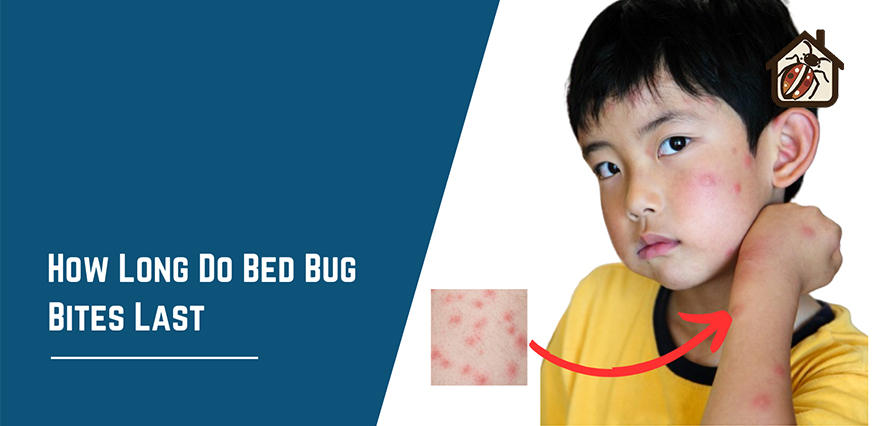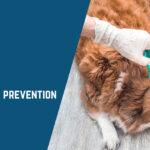
How Long Do Bed Bug Bites Last
After discovering those bothersome, itchy red bumps. Have you ever woken up wondering “Could this be the work of bed bugs, and how long do I have to deal with this?” though this problem is not unique to you, let’s explore the story of bed bug bites and how long do bed bug bites last:
How Long Do Bed Bug Bites Last?
A bug bite might appear on the skin within three days and usually disappears in about two weeks, but individual reactions can differ. People with sensitive skin often notice signs within an hour, and it might take up to three weeks for the bite to completely go away.
The First Itch
Bed bug bites appear one to two days after these nocturnal creatures have gotten enough of your blood. They frequently resemble mosquito bites, leaving red, itch-causing welts in the area where the bug bit. The worst part is that, in contrast to mosquito bites, bed bug bites typically cluster in a line or zigzag pattern.
The Great Disappearing Act
The good news is that bed bug bites are typically only a transient annoyance. Even while the itching may annoy you for a while, most people’s bites go away in a few days to a week. Most bite scars should be almost completely gone by the two-week mark, though some people may experience swelling or blisters that take a little longer to heal. Thus, keep your chin up!
What are the symptoms and appearance of bed bug bites?
Redness
Red, raised lumps that resemble mosquito bites are usually visible when bed bugs leave their mark. The twist is that bed bug bites frequently cooperate to create lines or zigzag patterns that distinguish them from their buzzing counterparts.
Itchiness
Prepare yourself for intense itching! Itchy bed bug bites are well-known, and the agony usually gets worse as night falls and gets warmer.
You may also like: How to treat bed bug bites
Swelling
Bed bug bites can develop into larger, swollen welts in people with sensitive skin. For people who are prone to skin sensitivities, there’s a little more drama.
Location
Although bed bugs attack at any time, they prefer to bite in exposed areas when you’re sleeping. Consider the arms, legs, shoulders, and neck—these are great areas where bed bugs hide and potential places where you can get bed bug bites. Therefore, it could be time to look into the bedtime offenders if you wake up with red, itchy bumps in a line or zigzag pattern!
What are some home remedies and itch relief for bed bug bites?
Ice pack
Apply a cool object to the bite, such as an ice pack wrapped in a cloth. The cold helps constrict blood vessels, reducing redness and itchiness from bed bug bites.
Oats
Use oats to make a paste with water or to make a bath with warm water and oatmeal. Cool ingredients in oatmeal help soothe and relieve skin irritation.
Aloe Vera
Aloe vera is a skin-beneficial superhero. It can relieve itching and redness from bed bug bites. To feel better, simply apply some fresh aloe vera gel to the bite.
Honey
Honey acts as a natural medication for bed bug bites. It can reduce irritation and aid in the healing of the bites. Apply a small amount on the bite.
Avoid Scratching
Try not to scratch! It might worsen the spot of bed bug bites. Cut your nails short to avoid rupturing the skin. To prevent yourself from scratching while you sleep, you can even wear light gloves at night.
Baking Soda Paste
To form a sticky paste, combine baking soda and water. Apply it on the bites to alleviate their discomfort from bed bug bites. Baking soda acts as a mild antiseptic.
Essential Oils
Tea tree and lavender are two oils that might help soothe bed bug bites. Drizzle a little over the bites after mixing them with coconut oil.
Calamine Lotion
Grab a bottle of calamine lotion at the pharmacy. It may provide a respite from your itching. Just make sure it doesn’t include menthol to avoid aggravating bed bug bites.
What are the signs of infestation?
Bed bug bites
The typical indicator of bed bug bites is red, itchy pimples that are frequently arranged in zigzag or line patterns. During sleep, check for them on areas of exposed skin such as the arms, legs, shoulders, and neck.
Tiny, dark dots on furniture or bedding: Dark spotting? Perhaps those are bed insect droppings, which would indicate their presence.
Rusty Stains
Another obvious sign of crushed bed bugs is rusty-colored stains.
Sweet, Musty Odor
The presence of a larger infestation may be indicated by a weird, sweet scent.
When indications are observed in several rooms or pieces of furniture, there is a serious infestation that needs professional assistance. Professionals in pest management have access to potent insecticides and methods for eradicating the infestation from its origin. They can locate points of entry and put precautions in place to stop such incursions.
You can at last regain your sleep sanctuary and rest easily knowing that your home is clear of bed bugs.
You may also like:
FAQs
Are Bed Bug Bites Dangerous?
How Can I Tell if my Bites are Bed Bugs?
What if My Bed Bug Bites Won't Go Away?
How Can I Get Rid of the Itch from Bed Bug Bites?
How Can I Prevent Bed Bug Infestations?
What Should I Do if I Think I Have a Bed Bug Infestation?
Conclusion
In conclusion, different people may have bed bug bites for different lengths of time. For the majority of people, these bites usually go away in a few days to a week. Most bed bug bite marks should heal significantly in two weeks, while some people may have persistent effects like blisters or swelling that take longer to resolve.
It is always a good idea to consult a healthcare provider if you experience ongoing discomfort or have concerns. Recall that although the bed bug bites may be uncomfortable, relief is on the way and they are typically only temporary.


